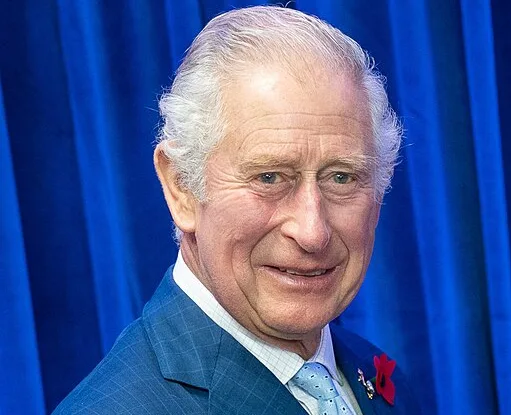The royal family’s unprecedented decision to postpone engagements during the election campaign sparks debate among experts
A recent palace statement about postponing royal engagements due to the general election campaign has raised eyebrows among constitutional experts. The announcement, described as “odd” and a “surprise,” has prompted discussions about its implications and the Royal Family’s motives.
Craig Prescott, a lecturer at Royal Holloway University and author of Modern Monarchy, expressed his surprise at the statement. He remarked, “I thought it was odd. I don’t remember previous general elections having any statement like this.” Prescott suggested that in the past, the Royal Family might have discreetly reviewed engagements without public announcements. The public nature of this statement contrasts with the more private approach likely taken under Queen Elizabeth II.
Embed from Getty ImagesShortly after Prime Minister Rishi Sunak announced the election, Buckingham Palace issued the statement: “The Royal Family will – in accordance with normal procedure – postpone engagements that may appear to divert attention or distract from the election campaign.” Palace sources emphasized that this procedure aligns with previous elections and mirrors the sensitivity observed by government departments during the pre-election period.z
Prescott suggested that this election’s distinction lies in King Charles III’s reign. He stated, “Charles comes into being King with a track record of being engaged in political issues in broad terms, in a way that Elizabeth II never was.” Prescott believes this may have prompted a desire for increased caution, ensuring the Royal Family remains above political involvement. The statement aims to make it unequivocally clear that the King will maintain a strict non-political stance.
Sky News understands that internal disagreements within the royal household also influenced the decision. Some members questioned the necessity of postponing engagements, highlighting the ongoing debate about the Royal Family’s role during politically sensitive times. King Charles and Prince William had scheduled visits, with the King due to visit Crewe and Prince William set to undertake engagements on Thursday. However, updated guidance from Buckingham Palace led to the cancellation of Prince William’s visit.
Both the King and Prince William’s engagements involved social issues, often perceived as political. These topics, although not directly political, touch on areas that can become politically sensitive, especially during an election period. This has led some to suggest that the Royal Family is acknowledging its proximity to the political sphere more openly than in the past.
Prescott pointed out, “It possibly exposes an acknowledgement from the palace that the royals are now straying closer to the political line than they may have done in the past.” This candid admission challenges the traditional view of the monarchy as an apolitical institution. The decision to postpone engagements may indicate a recognition that some royal activities might be interpreted as politically charged.
Despite the postponements, a garden party for the RNLI proceeded at Buckingham Palace. Future engagements will be reviewed on a case-by-case basis, with the Royal Family still attending significant events like D-Day commemorative ceremonies. This careful scrutiny of engagements underscores the Royal Family’s commitment to maintaining neutrality during the election period.
The Royal Family’s statement reflects a cautious approach to navigating the political landscape under King Charles III’s reign. By postponing engagements, the palace aims to avoid any appearance of political bias and ensure the monarchy remains a unifying figure above the political fray. This decision, while surprising to some, underscores the evolving nature of the Royal Family’s role in contemporary society.
Analysis:
The Royal Family’s decision to issue a public statement about postponing engagements during the general election campaign marks a significant departure from traditional practices. This move warrants an in-depth analysis from multiple perspectives to understand its implications fully.
Politically, the statement signals a heightened awareness of the Royal Family’s potential influence on public opinion during an election period. King Charles III’s previous involvement in social and environmental issues, often seen as political, necessitates a clearer delineation between his role as monarch and political affairs. By publicly declaring a pause in engagements, the Royal Family aims to avoid any perception of political partisanship, reinforcing its commitment to neutrality.
Sociologically, the statement reflects a shift in the Royal Family’s approach to transparency and public engagement. Under Queen Elizabeth II, such decisions were likely made privately, maintaining a discreet distance from political matters. King Charles III’s more open approach suggests a desire to modernize the monarchy’s interaction with the public, fostering greater trust through transparency. This shift may appeal to a society increasingly valuing openness and accountability in its institutions.
Economically, the postponement of royal engagements could have mixed effects. On one hand, it might reduce immediate economic benefits from royal visits, which often draw crowds and boost local businesses. On the other hand, the decision to maintain neutrality could enhance the monarchy’s long-term stability and public support, indirectly supporting economic stability by preserving the institution’s legitimacy.
From a local perspective, the postponement of engagements, such as the King’s planned visit to Crewe, affects local communities anticipating the boost in visibility and morale that royal visits bring. However, the Royal Family’s commitment to attending significant national events, like D-Day commemorations, ensures continued engagement with important historical and cultural moments, balancing local and national interests.
Considering gender and race, the Royal Family’s careful navigation of political sensitivities highlights its awareness of the diverse perspectives within the UK. By avoiding any actions that could be construed as politically biased, the monarchy aims to maintain its role as a unifying symbol for all citizens, regardless of gender, race, or political affiliation. This inclusive approach is crucial in a multicultural society where the monarchy must represent and resonate with a broad demographic.
In conclusion, the Royal Family’s decision to postpone engagements during the general election reflects a strategic effort to maintain political neutrality and modernize its public engagement. This approach, while surprising to some, underscores the evolving nature of the monarchy’s role in contemporary society, balancing tradition with the demands of transparency and inclusivity.
